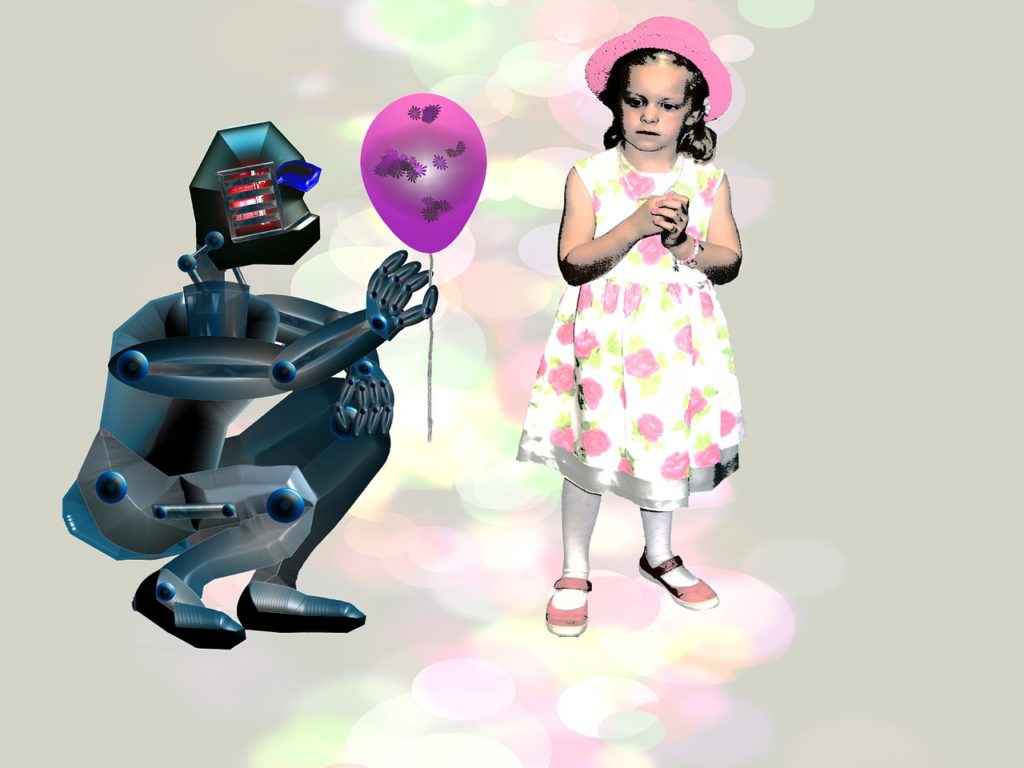Ever since the second International Congress on Love and Sex with Robots took place a few weeks ago, there have been a deluge of articles talking about marriage between humans and robots and how sexbots might impact marriages, for better or worse.
For every robot enthusiast, like artificial intelligent expert and Love and Sex With Robots author David Levy, who predicts human-robot marriages within in the next few decades, there’s a naysayer, like Kathleen Richardson, founder of the Campaign Against Sex Robots, who worries that “the creation of such robots will contribute to detrimental relationships between men and women, adults and children, men and men and women and women.” 
Which sounds a lot like the people warning us about how marriage between interracial couples, or same-sex couples, or how the increase in divorce will ruin the institution of marriage. Actually none has ruined the institution of marriage — in fact, they’ve just added to the number of people marrying. Instead, love-based marriages, the increased desire for independence and the availability of choices, especially for women, nowadays have done enough “damage” to the institution — if you want to call it “damage,” which I don’t. Instead, they’ve helped people realize marriage isn’t the only way to live.
These are things I’ve talked about before. I’ve also talked about how robots might impact romantic relationships before, too — the movie Her beautifully asks us to question, what is a relationship? — so it doesn’t make sense to regurgitate old ideas.
But since the recent spate of articles, I’ve been thinking about other ways robots will impact us beyond sexbots, because they’re surely going to be part of your future and mine. Certainly when it comes to work; this is a given. As well as self-driving transportation of all sorts. And even if you have no desire to have sex with — let alone marry — a robot, easy access to robots (assuming they’re affordable, a big unknown but presumably not initially) may impact how we approach our relationships, and create and re-create family.
Elderly care
Say, taking care of an elderly parent. Caregiving is an essential part of society but typically seen as women’s work, thus undervalued and underpaid — if paid at all. In fact, more and more working women over the age of 50 are leaving their careers to care for an elderly family member — at great personal loss, financially and emotionally. What if a robot could do that for us? A few years ago I interviewed Christopher Ford, who made his movie Robot & Frank — about the bond between an elderly man and a robot — after watching the struggles his parents faced while caring for their elderly parents, his grandparents. Would robotic caregiving be a bad thing? Would it be better than putting an ailing parent in a nursing home? Would it free up adult children — again, overwhelmingly women — from that responsibility so they wouldn’t have to disrupt their career?
Child care
What about caring for your own child? Would you choose a robotic nanny to help raise your kids so you wouldn’t have to opt-out — or struggle with work-life issues? What if a self-driving car would pick up your kids from school and take them to their various after-school sports and activities? Would that relieve some of the parental duties, again overwhelmingly the women’s role, that make having a career and a family seem so daunting? Will having a robotic caregiver make marriages more egalitarian? Would the robotic caregiver have a gender — and will that just perpetuate gendered caregiving?
Single parenting
What if you’re a single person who wants to have a child but hasn’t found a romantic partner to have one with, or perhaps isn’t even interested in having a romantic partner; would having a robotic caregiver make your life easier, or perhaps even make you more likely to have a child on your own? And, if so, would that mean fewer people would actually choose to marry, or even cohabit, given how “there is evidence of a certain fatigue with the difficulties of dealing with people,” as Sherry Turkle, a clinical psychologist and professor at the Massachusetts Institute of Technology, notes.
I think the emphasis and perhaps freakout about sexbots is obscuring other discussions about how robots likely will be intertwined in our relationships, romantic or not. Artificial intelligence is a growing part of our future, and not just when it comes to sex.
Will you welcome it and, if so, in what ways? Food for thought in the new year …
And, happy new year!
Want to explore having a robot be part of your marriage? Read The New I Do: Reshaping Marriage for Skeptics, Realists and Rebels (Seal Press). Order the book on Amazon, follow us on Twitter and like us on Facebook.

















If the robot was warm and human-like I might be able to enjoy a relationship, but robot would have to have a very wide definition. I still crave the warmth and affection of the human female.